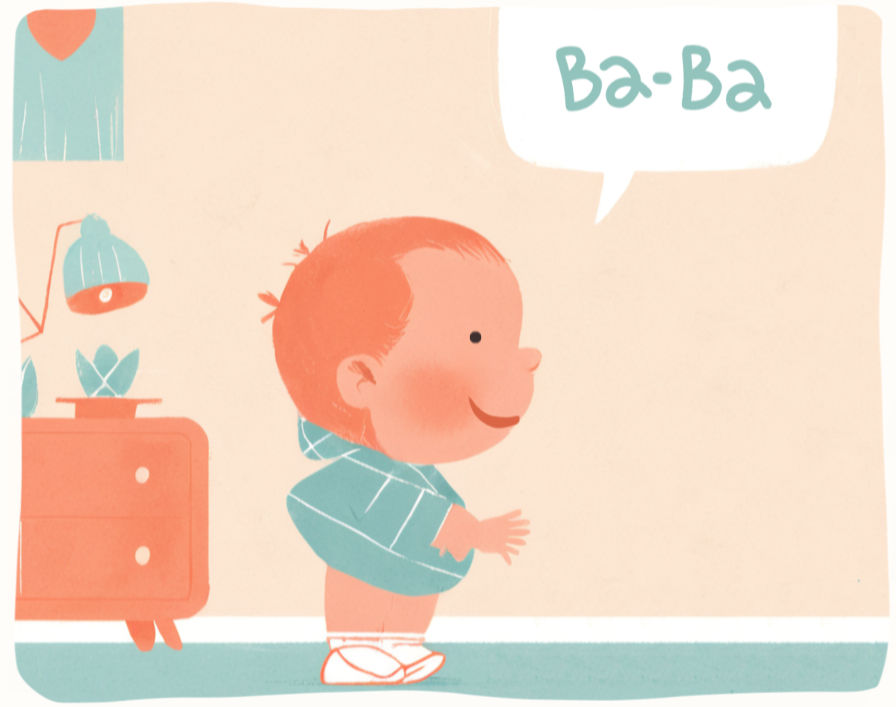When do babies start talking? Learn the stages of language development, gentle ways to encourage first words, and why every baby’s timeline is unique.

There’s something unforgettable about it: the day your baby looks up, opens their mouth, and says that very first word. Whether it’s “mama,” “dada,” or even “ball,” it feels like magic! Proof that they really see you and are ready to connect in a whole new way.
But if you’ve been waiting for that first word and it hasn’t come yet, you’re not alone. Parents often worry: “Is my baby late?” or “Should I be doing more to help?” The good news? Babies learn to talk at their own pace, and there’s plenty you can do to support them, gently and naturally.
Most babies say their first real word around 12 months, but the range is wide: anywhere from 9 to 15 months is perfectly normal.
Before words, there are stages:
Cooing (2-3 months): Long vowel sounds (“oooh,” “ahhh”).Babbling (4-6 months): Repeating sounds like “ba-ba,” “da-da.”Jargon (9-12 months): Babble with rhythm and intonation, like “talking.”First words (around 12 months): Clear attempts to label people or objects.
Language development varies widely. Some babies focus on motor skills first (walking, climbing) and talk later. Others observe quietly before suddenly speaking in full words.
Factors like personality, exposure to speech, and even multilingual households influence timing, but none of these are inherently negative. In fact, bilingual babies often speak later but show stronger cognitive flexibility later on.
You don’t need flashcards or formal “lessons.” The best way to support language is through everyday connection:
Narrate what you’re doing: “I’m washing the apple… now I’m cutting it.” Babies learn words in context, not isolation.
If they say “ba” for “ball,” respond with excitement: “Yes, ball! You see the ball!” This reinforces meaning and motivates them to try again.
Songs, nursery rhymes, and even silly sound games (“vroom vroom,” “moo”) help babies connect words with experiences, and rhythm makes it easier to remember.
Simple board books with big pictures and few words invite pointing and labeling. Make it interactive: pause, wait for their reaction, celebrate their sounds.
Watch what interests them. If they’re pointing at the dog, name the dog. Interest drives learning.
If your baby isn’t saying any words by 15 months or isn’t making sounds, babbling, or pointing, it’s worth checking in with your pediatrician. But most “late talkers” catch up quickly, especially with a language-rich environment at home.
When you know what’s typical, and that first words are just one part of a bigger journey, you can relax and enjoy it. Language development is a marathon, not a sprint. Every giggle, babble, and pointing gesture is progress.
- CDC’s Developmental Milestones. https://www.cdc.gov/ncbddd/actearly/milestones/
- Krista Byers-Heinlein, Casey Lew-Williams. Bilingualism in the Early Years: What the Science Says. Learn Landsc. 2013 Autumn;7(1):95–112. url: https://pmc.ncbi.nlm.nih.gov/articles/PMC6168212/

